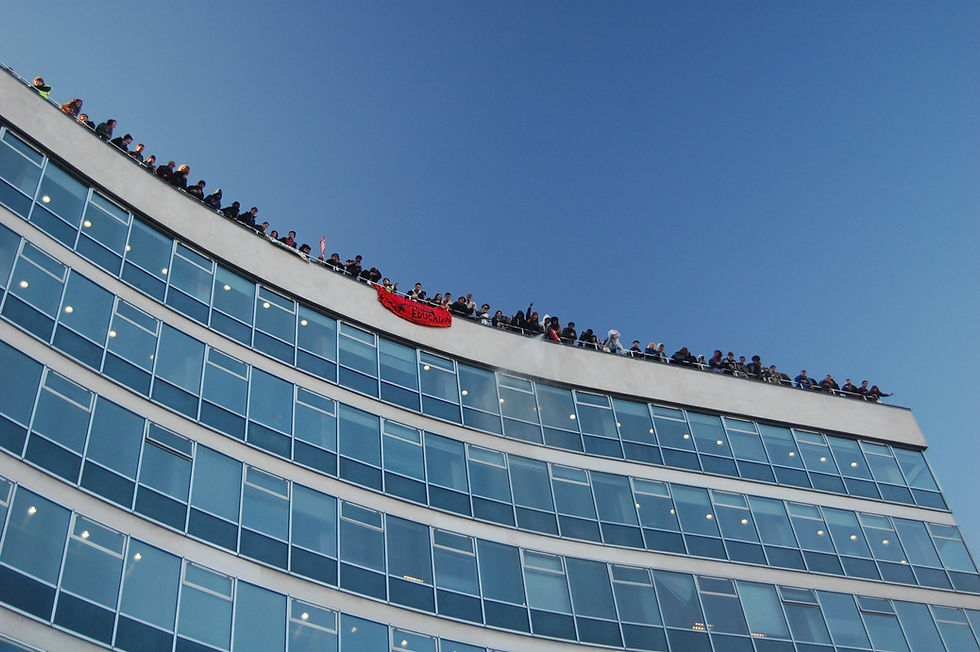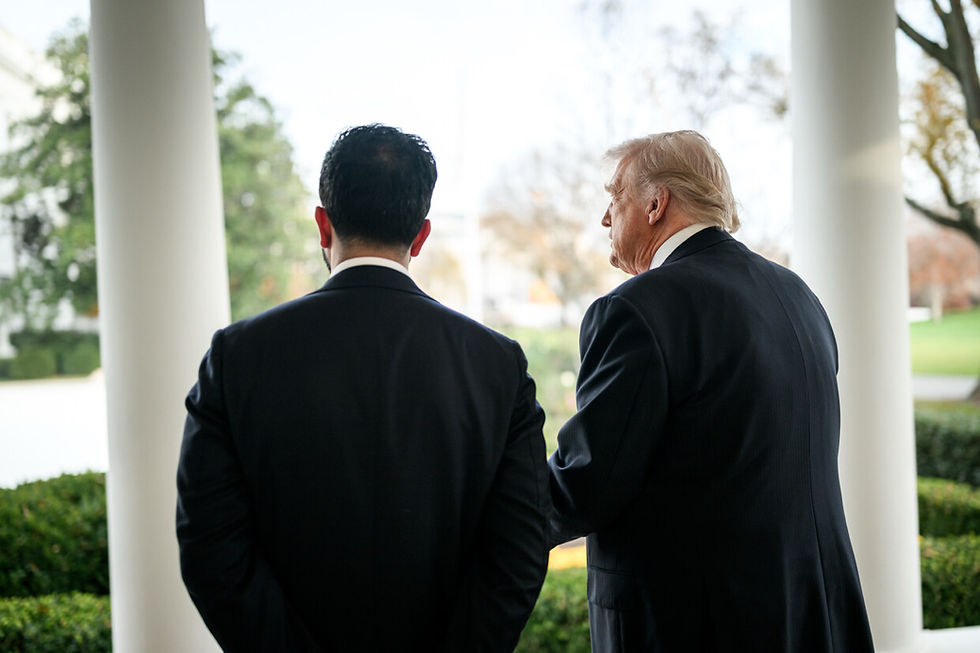Labour Sentences British Farming to Death
- Luke Goddard

- Nov 25, 2024
- 4 min read

A sea of tweed jackets and flat caps descended on Westminster this week to protest Labour’s new inheritance tax (IHT) policy. Agricultural assets over £1 million, that had previously been exempt from IHT, will now be charged at 20% from 2026, causing grave concern among farmers that their descendants will be forced to sell family farms that had been passed down for generations.
It is difficult to know at this point, merely four and a half months into the Parliament, whether Labour policymakers are deliberately trying to sabotage the Government or are just terrible at politics. The IHT policy is at best rushed and at worst an outright attack on the countryside and a way of life that has existed for centuries.
The tax was not included in any manifesto pledge. In fact, the then Shadow Environment Secretary Steve Reed claimed any suggestion he would implement a tax was “desperate nonsense” from the Conservative Party; explicitly telling the Country Land and Business Association (CLA) conference that he “had no intention” of removing agricultural property relief (APR).
Despite being an English graduate, Mr Reed obviously does not know the meaning of the words: nonsense, no, or intention. Although, to be fair to the Secretary of State, maybe it is not a case of misunderstanding but of not caring. He represents a London constituency (obvious candidate for the environment, farming and rural affairs portfolio then Keir) and never wanted the DEFRA job with his heart set instead on the justice brief.
Reed’s response to the farmers has been heroic (-ally bad). His initial reply drummed to that much loved Labour line surrounding the £22bn black hole in government finances, lamenting the “difficult decisions” this Government had been left to take and the economic mess left by previous Conservative administrations.
Despite the purported impending economic doom and thus the inescapability of the ‘tractor tax’, Reed has, confusingly, also spent a sizeable amount of time telling everyone how to avoid IHT. For example, he told one Gloucestershire farmer to just give the farm to his son, without, however, specifying where the man would then live.
Reed did eventually apologise to farmers. Well, not apologise exactly, but he did say the word sorry in a speech to the same CLA conference he addressed last year. The actual phrase was "it's hard to be sorry for trying to make the UK’s economy work,” Whatever that means.
His incompetence is perhaps only overshadowed by that of the treasury officials who implemented the policy in the first place. This was a last-minute addition to the budget that was bolted onto wider reforms without much apparent scrutiny of the implications for farming.
The Treasury seems unable to do basic mathematics, a slight concern for the body in charge of Britain’s economy, as the estimated number of farms affected appears to be completely wrong. The government’s figure was 500 farms per year (which incidentally is still a lot of farms over time) but this has been rebuffed by industry bodies such as the CLA.
The brainy Government official who did these sums simply took the number of farms applying for APR, which covers farmland and pastures, in 2021-22 and extrapolated the numbers to produce a 2026 estimate. They appear to have completely forgotten about all the agricultural assets (equipment, livestock, tractors etc) that are needed to run a farm. These business assets fall under a different relief scheme (BPR) but will now be subject to the same £1 million cap, pushing many more farms over the threshold.
Using 2021-22 statistics for APR is also misleading. Land prices have increased at a double-digit rate since 2021, which is much higher than historical trends. This has greatly inflated the land value of smaller farms meaning a higher percentage will be eligible to pay IHT. All of these factors have led the CLA to estimate that 70,000 farms could be affected by the tax overall.
Fundamentally, Labour has chosen to ignore the basic fact that most farmers are asset rich but cash poor. According to government statistics, 17% of British farms don’t make a profit whilst the number making under £50,000 was 59%. Therefore, according to the CLA the average family farm would use 159% of its profits for a decade to pay IHT.
This policy comes at a time when UK farms are already under acute pressure. Farming costs have skyrocketed, impacted by geopolitical events such as the war in Ukraine, whilst no government has yet produced a sufficient compensation scheme to make up for the loss of subsidies caused by Brexit.
Poor mental health among farmers is at crisis levels with farmers at greater risk than the general population of mental ill health and suicide. 95% of young farmers even cited mental health as the most pressing hidden danger in their profession today. The policy will only exacerbate these problems, putting farmers under greater stress and shrinking their profit margins further.
Far from targeting rich landowners who bought farmland to avoid paying IHT, this policy will mainly affect medium size family-owned farms that just cross the payment threshold and don’t have the profit margins to pay off the tax, even over a ten year period. These farms will be forced to sell off land, no doubt to the corporate buyers Labour wanted to tax, ending a generational tradition of family farming.
It is also a spectacular act of self-harm from a Labour Party that has just won over 100 rural or semi-rural seats. A clear demonstration of how little they understand, or care, about rural England and its inhabitants.
This could work in the farmers’ favour; new MPs may start to panic at the sight of their inbox filling up with angry emails from constituents demanding a change of tack. However, I am not convinced. Labour’s parliamentary majority is so large that they can conceivably wait out current criticism and avoid an embarrassing policy U-turn.
All of which leaves the future of British farming in the lurch and the possible death of a centuries old tradition.
Image: Wikimedia Commons/Derek Voller
No image changes made.
.png)



Comments